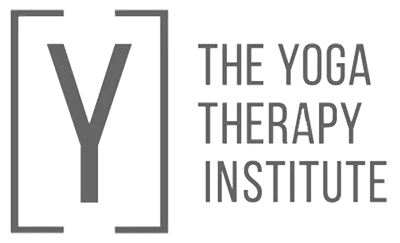“Yoga therapy is the professional application of the principles and practices of yoga to promote health and well-being within a therapeutic relationship that includes, personalised assessment, goal setting, lifestyle management and yoga practices for individuals or small groups.”
– International Association of Yoga Therapists
The Importance of Yoga Therapy
Yoga Therapy is becoming an important modern pillar of support for physical and mental health, but where does it actually come from and why should we choose Yoga Therapy as a form of treatment?
First of all, we feel it is important to shed some light upon its origins. Just like yoga itself, it is hard to establish a specific moment when Yoga Therapy was born. In fact, there are many sources that have contributed to the development of this discipline, starting from the time of the Yoga Sutras of Patanjali (II C.E), where Yoga was described as a methodology to achieve the end of suffering, rather than a way of achieving better health.
Patanjali does, however, mention disease as one of the obstacles of spiritual practice and the yogis of the time also used a traditional holistic system of medicine, called Ayurveda.
The first text where Yoga is mentioned as therapy, is the Hatha Yoga Pradipika (1350 CE). In this book, some yoga poses and pranayama practices are described for their health effects: “In all diseases, a yogic patient should take treatment from a physician and also use yoga treatments” *Chapter 5
From the XIX century until today, a number of teachers and scholars, from Sri Kuvalayananda, Sri Yogendra and Sri T Krishnamacharya, to BKS Iyengar, T.K.V Desikachar, AG Mohan and Indra Mohan, have contributed to the initial development of Yoga Therapy.
However, modern Yoga Therapy is a lot more than a heritage from the past: Yoga Therapy is where past, present and future meet. It is where modern research, medical studies, psychology and yoga converge – with the addition of basic common sense.
Contrary to popular belief, yoga practices are not suitable for everyone. In fact, many general yoga poses that are taught in yoga classes and which abound on the internet, are actually contraindicated for people suffering from high blood pressure, heart disease, diabetes, scoliosis, herniated discs, inflammatory bowel disease, autoimmune disease, cancer, asthma, COPD and many other physical health issues. Some yoga practices can also be counterproductive, even dangerous, for anyone suffering from mental illnesses, eating disorders, clinical depression, PTSD and panic disorder.
This is where knowledge of modern medicine, the understanding of trauma-informed psychology and collaboration with health practitioners and researchers become the essential ingredients for the ultimate development of Yoga Therapy as a continuously evolving, adapted, safe and complementary form of therapy.
As we learn more about conventional and new medical treatments for disease, so Yoga Therapy develops and adapts. For example, yogis of the past thought that inversions were beneficial for the brain as a preparation for meditation, however, thanks to modern anatomy and physiology, we now know that inversions can cause a stroke in people over 40 years of age. Yoga Therapy, therefore, arrives with a brand new set of contraindications, variations and modifications, which need to be implemented when working with anyone over 40, in particular those that are overweight, have elevated blood pressure, women after menopause, diabetics and those with a history of heart disease.
Yoga Therapy is both trauma-informed and trauma-sensitive, thanks to the current research work of Bessel van der Kolk, MD and The Trauma Center Trauma-Sensitive Yoga (TCTSY) programme from the Center for Trauma and Embodiment at Justice Resource Institute.
Finally, it is important to mention that science-based Yoga Therapy would not exist without the work of The International Association of Yoga Therapists (IAYT). The IAYT is a professional body which supports research and education in yoga and serves yoga teachers and Yoga Therapists, worldwide. Their mission is to establish yoga as a recognised and respected therapy and they consistently champion Yoga Therapy as a healing art and science.
Their publication, The International Journal of Yoga Therapy (IJYT), is an annual, peer-reviewed journal serving yoga practitioners, yoga teachers, yoga therapists, health professionals and yoga researchers. They publish scholarly and research-based submissions, related to any tradition or aspect of Yoga Therapy.
They also organise an annual Symposium on Yoga Therapy and Research (SYTAR) and a Symposium on Yoga Research (SYR), the foremost academic yoga research conference.
Ancient wisdom on its own could make yoga a dangerous, misinformed practice, in the same way that modern knowledge, by itself, can lack the weight of past experience and collective wisdom that has served us for thousands of years.
Yoga Therapy includes elements of traditional yoga practices, adapting them to the individual according to their physical, psychological and emotional needs as well as their history and environment. Furthermore, Yoga Therapy is supported by the back-up of modern medicine, psychology and research.
More than ever, we face uncertainty in a confusing, sometimes scary world. The origins of Yoga Therapy lie in the need for increased support for our physical and mental health and a deepening understanding of the human condition. A space where we can find silence, introspection and interoception, whilst still connecting with others in a safe place. Learning from the mistakes of the past and looking ahead towards the future, Yoga Therapy is a science and knowledge-based platform where there are no gurus to follow, only the sensitive guidance and safe tools offered by compassionate, certified practitioners, making yoga accessible for everyone.
For more information on Yoga Therapy and how Yoga Therapy can help:








